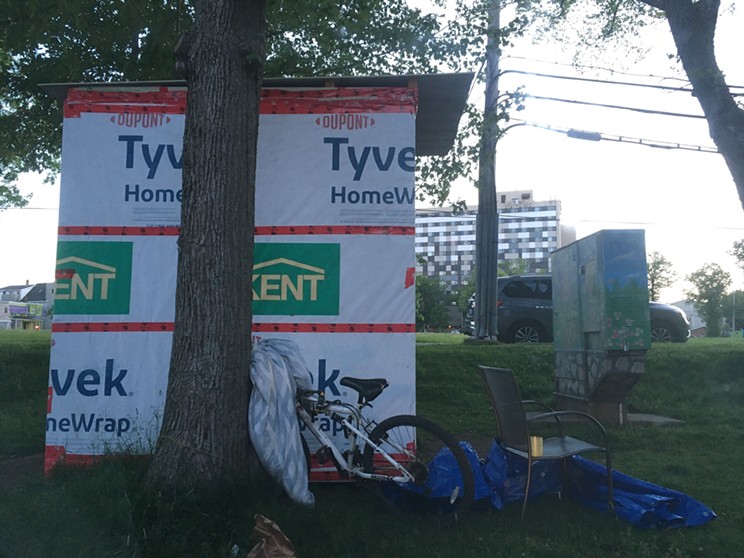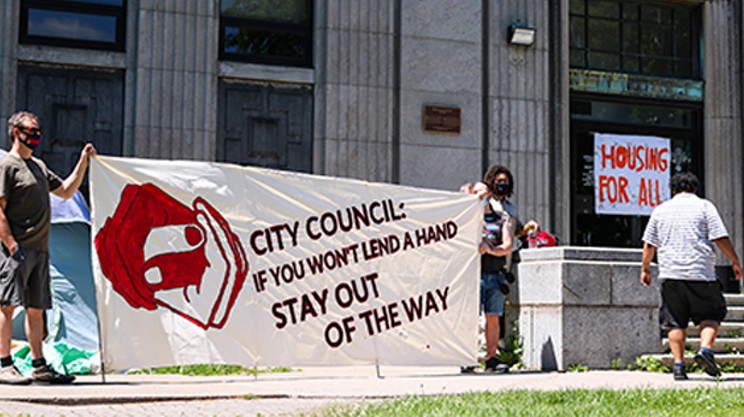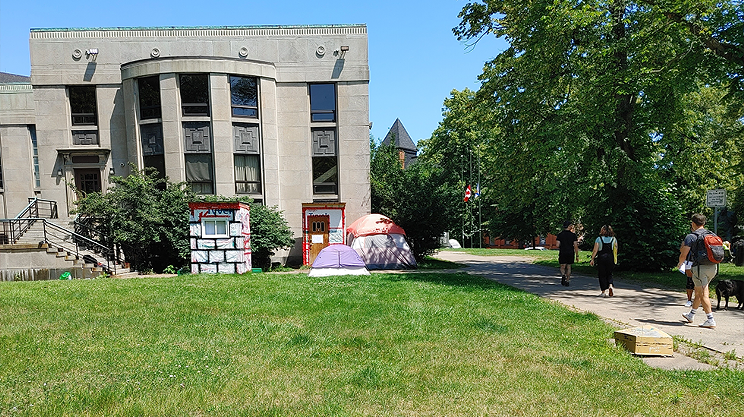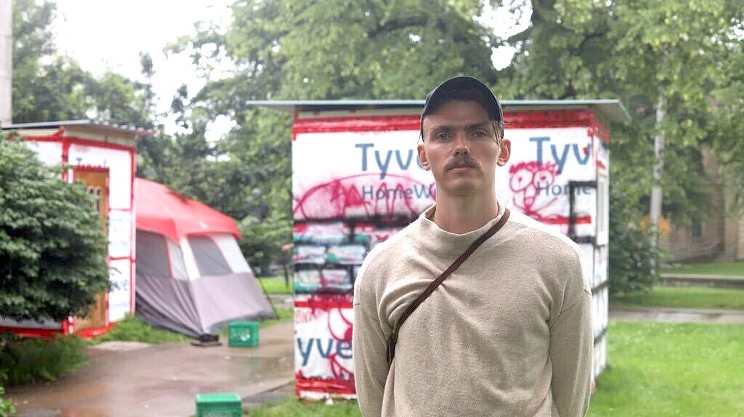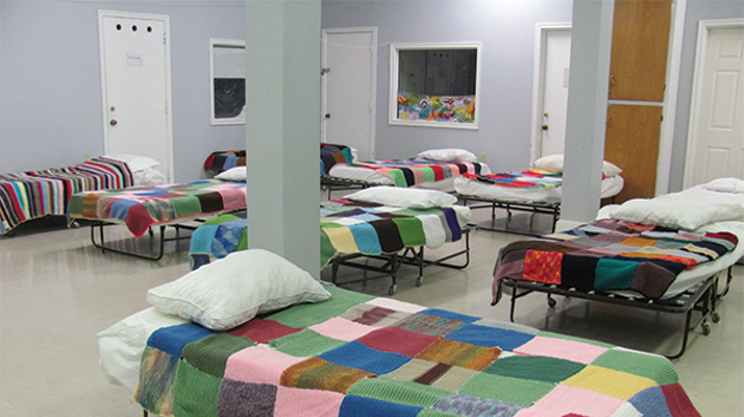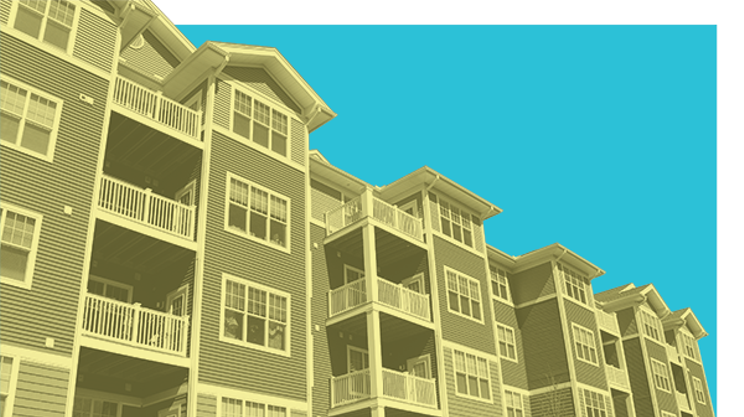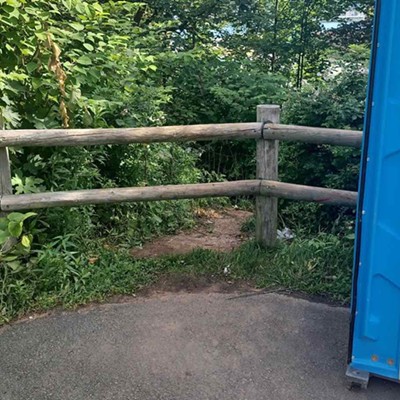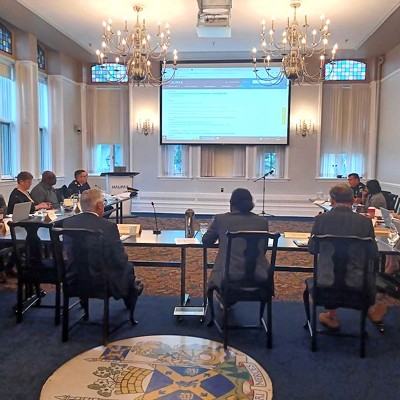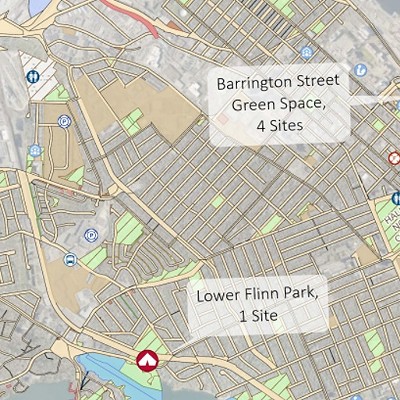“They have ALL been offered safer alternatives for housing,” said another councillor on Twitter.
But the people living in them have real needs and wants. The need for shelter, the want for a secure place to call their own. Each resident must find a way to bathe themselves, a place with electricity to charge their phone and a place to eat. It was that final need that saw one shelter burn down on the evening of Saturday, June 26.
The shelter, at 2032 Parker Street, was situated at the lower end of the park where Windsor Street meets Quinpool Road. It was covered in rudimentary insulation from Kent, striped with red tape, and had a flat roof. Outside sat a bicycle, a blanket and a lawn chair—simple things that said “home” to the person who lived there.
But what ignited the fire was inside the home. “There was a sleeping
mattress that had a burner unit near it (either on top or under), right in the area of the burn pattern,” says the Halifax Fire and Emergency report released to The Coast. “Likely that the burner unit had been left unattended and had caught either the mattress or clothes in the area on fire which spread to the wall of the building. Fire was deemed to be accidental.”
The fire was responded to by captain Stephen Bussey, who filled out the report obtained by The Coast. According to that report, the fire was first reported by a caller who said, “there is a bunch of smoke pouring out and door is closed.”
Following a response, the fire was officially put out by 10:03pm, just eight minutes after it was first reported. “Fire was on the interior and quickly extinguished,” says the report from Bussey. “Once confirmed nobody was inside back up was returned.”
The lone occupant told the fire department they’d been outside and away from their home for three hours by the time the fire began, and the report describes the source as an “Open Fired Barbeque.” There was no electricity in the building.
Halifax Fire deputy chief David Meldrum confirms it was a “single burner propane cooking appliance such as is commonly used for camping.” While similar fires happen in established homes, Halifax councillor Shawn Cleary says what happens on city property means the city is liable for it.
“It’s not just a concern of mine. It is a concern of our CAO and lawyers. Safety and liability are huge issues,” Cleary tells The Coast.
“I've seen inside several of them, I've seen pictures of several of them. You know, some of them are full of like bags of stuff,” Cleary says. “And you know, it's just plain wood inside, it's very flammable. You can imagine one of these going up in flames with someone inside it, say at night, trying to keep warm. And that’s a huge liability issue.
“Because they're on municipal land, and that is an issue when it comes to if someone dies, or if someone is injured. We can see the municipality being sued, I can see the CAO and our employees being charged with criminal negligence.”
And while that may be true, the Halifax Mutual Aid society says all shelters have smoke and C02 detectors, and that many also have fire extinguishers after the recent fire.
HMA shelters have always been installed with smoke & CO2 detectors. Shelters designs have reflected the advice received from fire fighters, builders with numerous specialties, accessibility consultants, & other professions. These aren't "shed" or "shacks" - people call them home.
— MutualAidHFX (@MutualAidHfx) July 7, 2021
“These shelters are better than a bank lobby, which is where most people were sleeping before that,” says HMA spokesperson Campbell McClintock. “So at the end of the day, it just comes down to the councillors and the politicians really having no idea what kind of day to day reality these people are facing, and forcing them into sort of dehumanizing position by forcing them into these systems, rather than listening to their really basic needs and working to provide them legitimate dignified housing.”
Councillor Cleary couldn’t say whether a solution could be found by installing fire extinguishers or smoke detectors in all of the shelters.
“To be honest, I would have to talk to the lawyers,” he says. “Because, you know, that's really a question of if you get in front of a judge, and you're forced to prove evidence that you have taken every step necessary to ensure the safety of your premises.”

